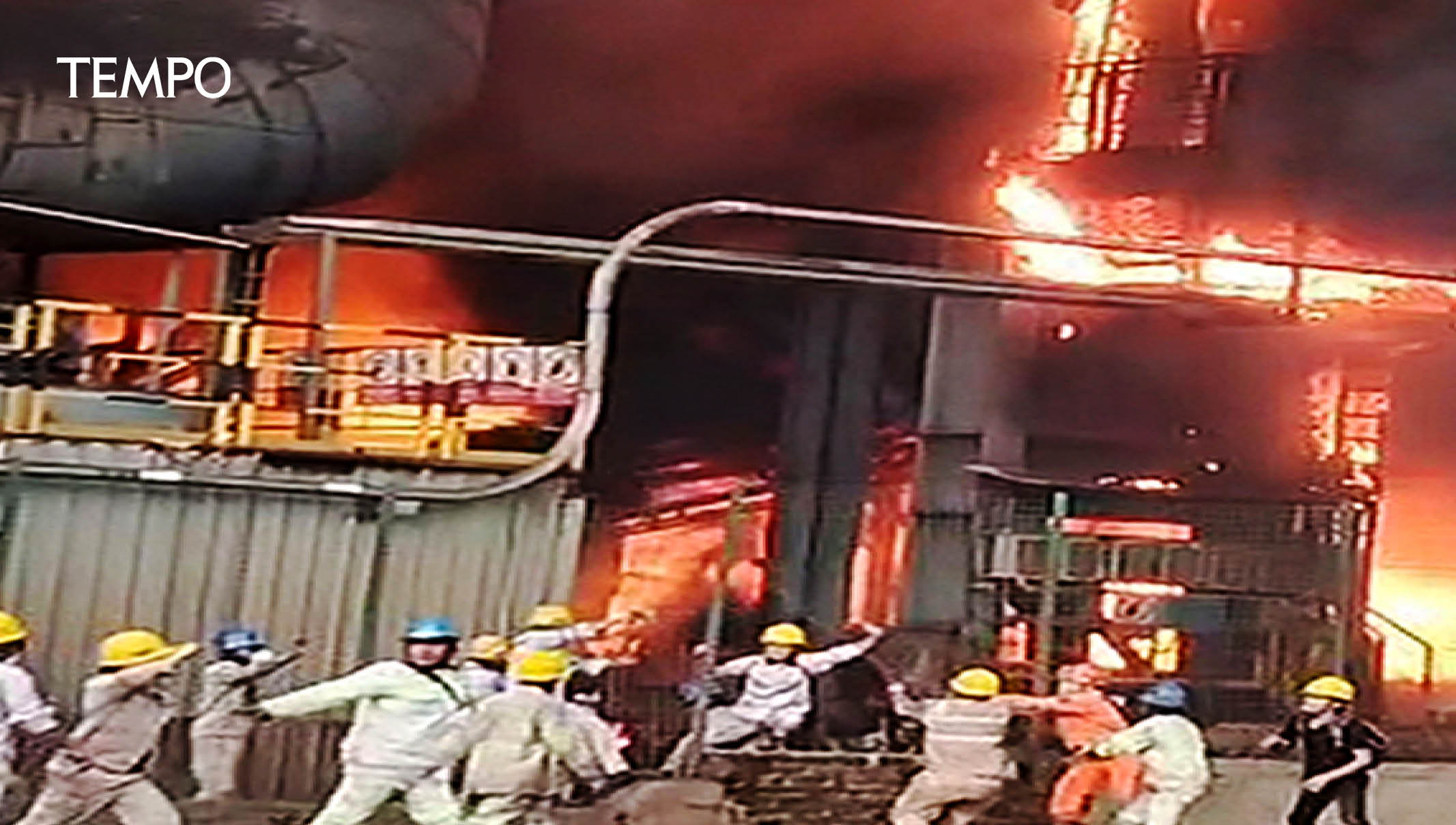Finding Blame in the Morowali Nickel Smelter Incident
Is the fire at Tsingshan Indonesia nickel smelter really going to be blamed on workers?
Tempo
January 8, 2024

INVESTMENT should make people prosperous, not cause them to lose their lives. But in the name of investment in a nickel extraction region that has become a crucial part of the economic policy of Joko Widodo’s government, it is as if no value is put on the lives of workers. Repeatedly allowing accidents to occur is no different from a crime.
One example of this attitude is the number of accidents at the Indonesia Morowali Industrial Park (IMIP) in Morowali, Central Sulawesi. The Manpower Ministry, the Industry Ministry and law enforcement officials have not been serious in upholding the regulations. There have been no reports of any companies there receiving serious punishment for allowing the deaths of their employees.
As a result, throughout 2023 there were more than 20 industrial accidents there resulting in at least 37 deaths and dozens of injuries. Of these accidents, the most serious was the explosion at Indonesia Tsingshan Stainless Steel (ITSS) nickel smelter furnace on December 24, 2023, which killed 21 people. And the total number of workplace deaths is even higher if it is counted since 2015. At least 53 workers have died, including Chinese citizens.
The government’s attitude of allowing these companies to endanger their own employees is a violation of human rights. This is a far more serious crime than the charge of negligence resulting in the deaths of employees, which is the offense the police are focusing on following the accident at Indonesia Tsingshan in December 2023. Therefore, the National Commission on Human Rights (Komnas HAM) must intervene.
An independent investigation by the Komnas HAM is also needed to shed more light on the case. The probe must not simply be confined to blaming the workers who were carrying out repairs to the furnace and naming them suspects. There are very strong indications of systematic failings by the company’s management. These range from carrying out repairs on a furnace that had not fully cooled because of a desire to reach production targets, to ignoring workplace health and safety standards. Based on these facts, the company should face criminal charges.
But there are already clear signs that the investigation will only focus on alleged negligence by employees. Investigators from the Manpower Ministry, for example, have had problems gaining access to the IMIP site, which contains dozens of smelter companies, to investigate alleged violations of Labor Law by Indonesia Tsingshan. The investigation of violations subsequently shifted focus on employee negligence and procedural violations after the Coordinating Ministry for Maritime Affairs and Investment intervened. It is possible that this investigation will end with suspects being named, but will leave the company untouched, with no possibility of any revelations about government failings to date.
Protecting the guilty and covering up crimes is no different from turning workers into fall guys for investment. The dozens of deaths and injuries are not a statistic that can be traded off for an economic growth percentage. So far, President Joko Widodo’s administration has always boasted that downstreaming nickel will increase the value of exports from Rp15 trillion to Rp360 trillion. But the fact is that poverty in nickel producing areas such as Central Sulawesi, Southeast Sulawesi and North Maluku has actually increased after the ‘downstreaming’ policy.
As well as this, the nickel processed by the smelters is only turned into ferronickel or nickel pig iron—both ingredients of stainless steel, rather than high value end products. Most of these intermediate stage products are then exported to China. In other words, the downstreaming of nickel is supporting industrialization in China, not in this country. Therefore, the hyped claims of a huge increase in export value are in fact nonsense.
All of these facts show that ‘downstreaming’ is not living up to the claims of Jokowi and his followers. Exploitation of nature, environmental destruction and the loss of human lives do not feature in their dictionary. The reckless downstreaming of the nickel industry for the sake of the ambitions of a small number of people have shown their dark side.
